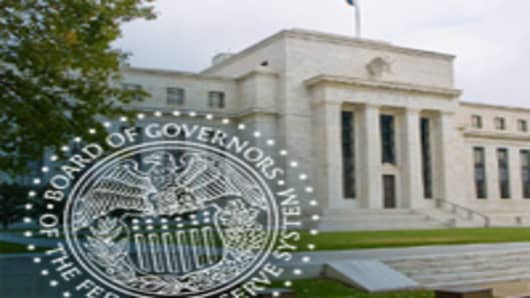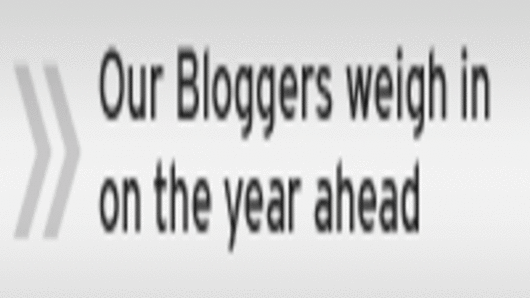1. The easiest call for 2010 is that the Federal Reserve will begin to raise interest rates in the second half of the year.
The question is by how much? The U.S. exited its "Great Recession" in the third quarter of 2009, with GDP growing 2.9% and the fourth quarter should be above 2.5%.
Economists are torn between two futures: 2% GDP growth or 4% GDP growth. The former point out that the weak position of US consumers with a debt-to-income ratio of 125% and an unemployment rate above 10%.
Proponents of the latter say the economy is recovering with the help of the US government and the Federal Reserve stimulating demand. This shows up in data like leading economic indicators (up seven months in a row) to home prices (stabilizing).
Currently, 12-month overnight index swaps (OIS) are showing almost no chance of the Federal Reserve raising rates for the next year and that supports the 2% crowd. I think growth returns enough to make the Fed raise rates a quarter of a percentage point three times by the end of the year.
2. One of the most difficult aspects of Ben Bernanke's job is going to be raising rates in 2010.
The surge in popularity of Rep. Ron Paul (R-Texas) and his attempt to audit the Federal Reserve via the General Accountability Office is going to make matters extremely tricky for the Fed.
Paul's amendment and his belief that the Federal Reserve should not exist is gaining ground in populist America. My next call is that we'll see more Congressmen and Congresswomen elected in the 2010 midterm elections that want more control over Fed policy decisions. During the financial panic, I think it was jarring for members of Congress to learn that three men (Paulson, Geithner and Bernanke) could make decisions over $900 billion in taxpayers money without any oversight. This will change in 2010.
3. The Chicago Cubs will win the World Series!
Seriously, I think something more interesting will change: Barack Obama. Like Bill Clinton, Obama came into office with big plans for big government and big plans for a new way of dealing with old foes. So far, Obama's health care plan is being debated, but the plan's ability to actually reduce health care spending is in question.
Obama came into office, saying he would pull troops out of Afghanistan and negotiate with Iran. Now, the U.S. is working with the UN for sanctions on Iran and has added 34,000 new troops to Afghanistan. On foreign policy, Obama is beginning to resemble a centrist Republican.
Due to the looming fiscal crisis, I believe our president will recognize the obvious and attempt to do something about it. Unfortunately, this is where he doesn't change enough as there is a growing possibility of the White House and Congress imposing a VAT or national sales tax to presumably reduce the deficit. It will be precisely the wrong thing at the wrong time for the U.S. economy.
______________________________
Andrew B. Busch is Global Currency and Public Policy Strategist at BMO Capital Markets, a recognized expert on the world financial markets and how these markets are impacted by political events, and a frequent CNBC contributor. You can comment on his piece and reach him hereand you can follow him on Twitter at http://twitter.com/abusch.




